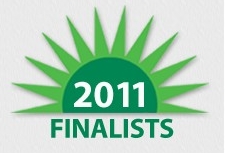Clean Skies, a national Benefit Company dedicated to helping K-12 schools and the environment, has intro Clean Skies Certificates for Education™ to provide financial aid to disadvantaged schools. The country’s current financial woes could mean a reduction in the Federal subsidies that have helped to pay for teachers and to keep class sizes down. As cuts are made to school budgets, the best hope to achieve financial stability may be to implement revenue-producing programs like Dragonfly’s innovative School Energy Efficiency Development (SEED) Program.
“Even the most disadvantaged schools can improve when sustainability programs are successfully implemented and integrated with community support and financial aid”, said L. Brent Ivie, Dragonfly’s CEO. “The SEED Program is a sustainability program for schools that captures and monetizes the environmental attributes created by schools that reduce their energy use, recycle wastes, conserve water, or install renewable energy projects.” Each Clean Skies Certificate is equal to energy savings or clean energy production of 1000 kilowatt hours – approximately the electrical energy consumed in a month by an average U.S. home.
Clean Skies Certificates generated by K-12 schools are sold to large corporations, small businesses and individuals intent on offsetting their greenhouse gas emissions or becoming “carbon-zero”. Clean Skies Certificates have the double advantage of helping the environment and disadvantaged schools. Businesses that purchase Clean Skies Certificates exhibit corporate responsibility and create customer loyalty. Schools receive cash from Certificate sales and reinvest a portion of the revenue in additional energy-saving projects. In turn, these clean energy projects create additional cash rewards and lower energy costs. Energy bills are the second largest school budget item and are expected to increase 5% per year for the next decade.
“Although it is rarely done, members of the community must be involved in helping to solve the problems our schools are facing”, said Mr. Ivie. “Evidence shows that a collaborative, community-driven approach combined with significant, sustained financial aid and a focus on learning has been proven to be the better path to school improvement. Schools in communities where people and businesses believed they had the ability to make a positive change were twice as likely to succeed in solving school problems.”
“Clean Skies for Education Program is a bold new environmental commodities program that overcomes the challenge of getting energy saving technology into schools with tight budgets while creating substantial new revenue streams for schools at the same time” said Jacqueline Zielenski, Dragonfly’s President. “The hopeful news is that even truly disadvantaged schools can be improved. Through the SEED Sustainability Program, some incredibly positive changes can be made rapidly with no expense to schools.”
Filed under: Uncategorized | Leave a comment »





 Dragonfly Solutions
Dragonfly Solutions



